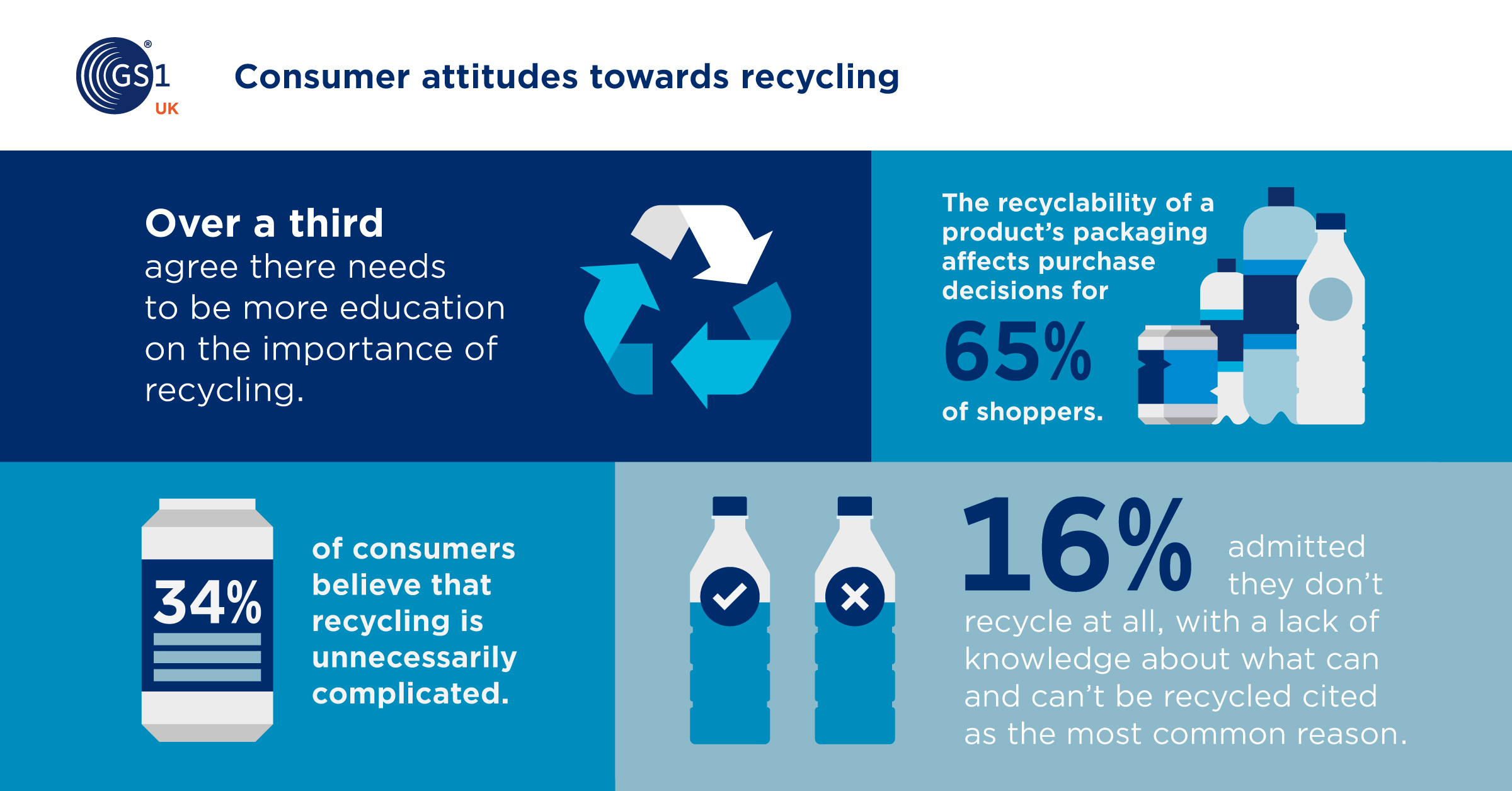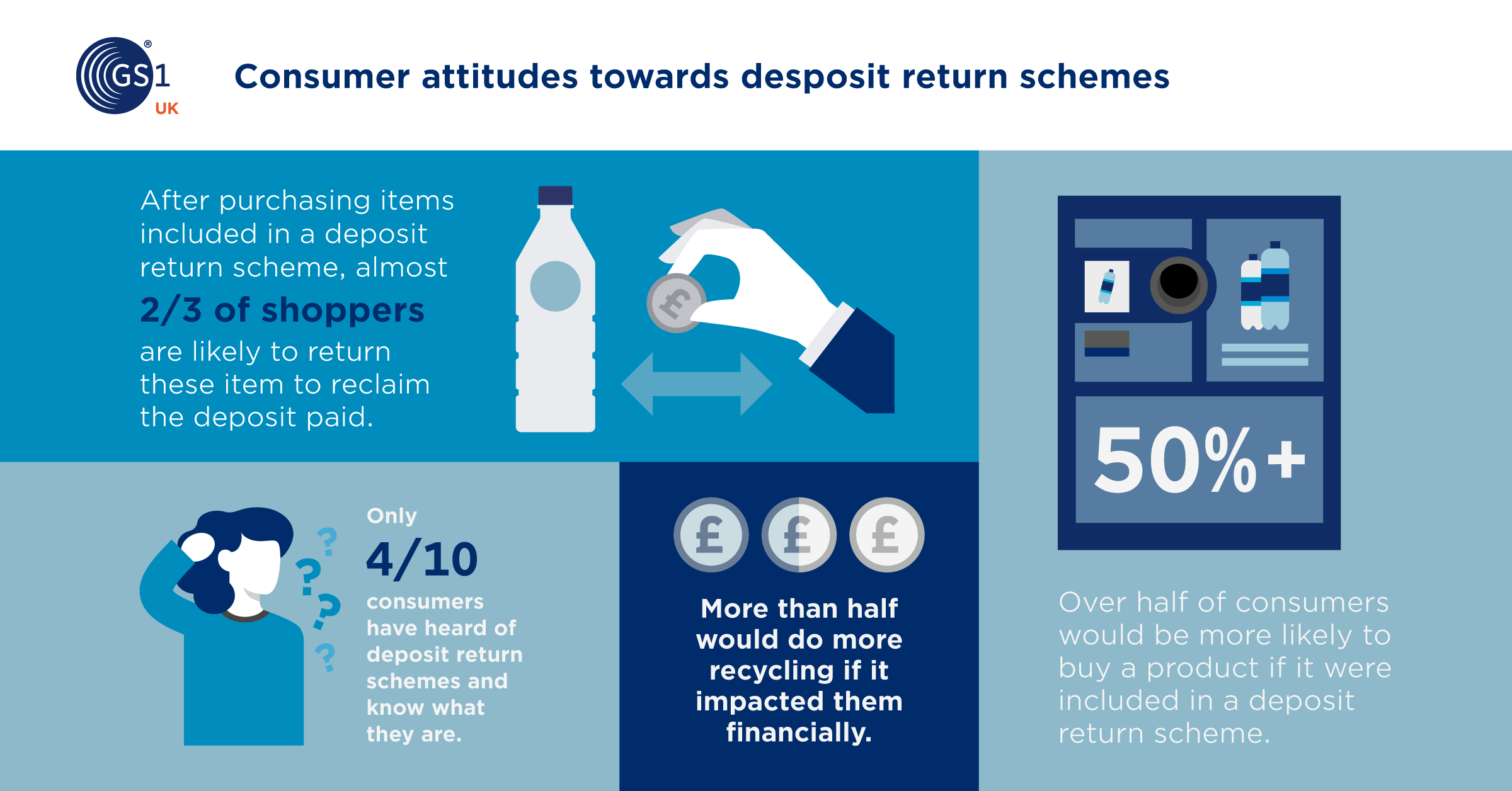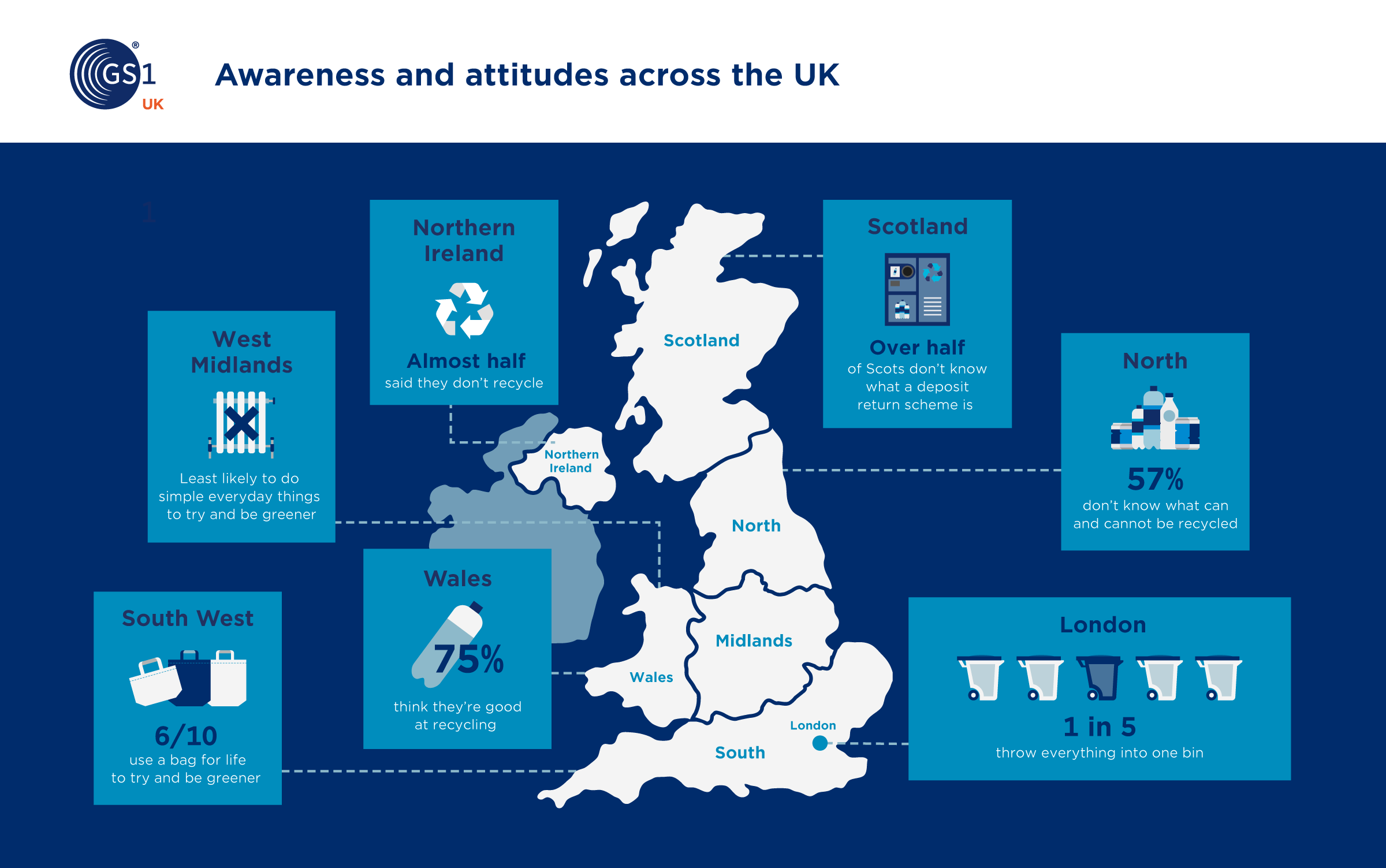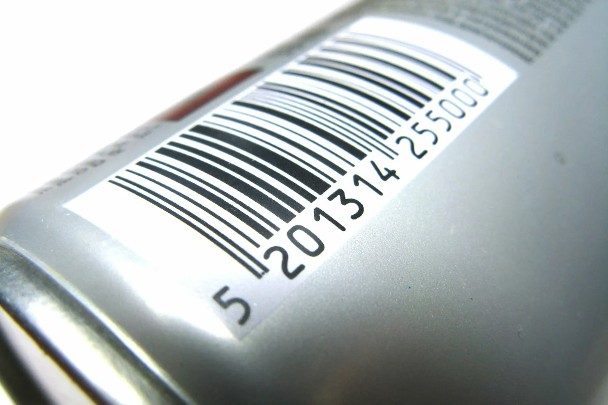
The DRS challenge
Deposit return schemes (DRS) are designed to encourage recycling by charging consumers a deposit on drinks containers which is refunded when items are returned to a collection point. All four UK nations have announced that they will introduce DRS by 2025, with the Scottish scheme set to launch next year.
DRS has the potential to fundamentally change the way we recycle for the better. It will however add costs and complexity not just for consumers, but industry, waste collectors and local authorities.
With the impacts of DRS soon to hit both shoppers and industry alike, we surveyed business owners and consumers across the UK to measure their awareness, readiness and attitudes as well as the challenges facing successful implementation.
Simplicity is key
Our research has found that a third of consumers believe recycling is already unnecessarily complicated and 16 per cent don't even bother trying to be green as a result.
In fact, recent figures from DEFRA show that the amount of household waste recycled in England fell by 1.5 per cent in 2020 to 44 per cent, 6 per cent below the EU minimum target of 50 per cent.
This is a concerning statistic, especially given that each year, UK consumers are estimated to get through 14 billion plastic bottles, nine billion aluminium and steel cans, and 1.5 billion glass bottles; products that already account for 75 per cent of the litter found on UK streets.

While recycling rates may be falling, it appears consumers do want to recycle more. 65 per cent claim that the recyclability of a products packaging affects their decision to purchase, 37 per cent agree that more needs to be done to educate people on the importance of recycling, and 33 per cent believe there should be more support to encourage people to do so.
Greater awareness needed
Despite the huge impact deposit return schemes’ will have on consumers behaviours, and their wallets, our research also found that only 42 per cent had heard of them and understood how they worked, whilst a quarter had no idea what they were at all.
When how a potential scheme could work was explained, 60 per cent of consumers surveyed said being able to reclaim a deposit would make them more likely to buy products included in the schemes, and 57 per cent would do a lot more recycling if it meant they wouldn’t be left out of pocket.
This suggests that a little incentive could go a long way as two thirds of consumers also reported being more likely to return packaging waste to collection points if it meant they could reclaim their deposit.

Cost and complexity
Our research amongst business owners also revealed a worrying lack of awareness as 38 per cent were not aware of DRS at all.
Despite 69 per cent of businesses believing the introduction of DRS will be a positive step for their industry, four in 10 think that the schemes will have a negative impact on their own businesses.
Consumers could also be in for a double price hike on items included in the schemes. A third (33 per cent) of businesses surveyed said they will raise the RRP of products to account for added operational costs and complexities.
A successful scheme needs to be simple and straightforward for shoppers if we are to change recycling behaviours. It also needs informed consumers, which is why we back calls for greater awareness raising from UK governments and deposit management organisations, to ensure customers know exactly how to return their containers and redeem their deposits.”
Nadiya Catel-Arutyunova
Policy advisor for the British Retail Consortium
More to be done
The final rules and regulations are still to be decided with the four UK nations planning on taking different approaches with different timelines. GS1 UK, as a result, is calling for a future-proofed approach that delivers simplicity, convenience and ease of use for both consumers and industry.

An effective scheme relies on consumer participation. As our research shows, a little incentive can go a long way to encourage adoption but simplicity, ease of use and ensuring that consumers are well informed will play a vital role in delivering DRS success.
There’s no doubt that the introduction of deposit return schemes can be a positive step forward, but the needs of consumers need to be carefully factored into their design if they are to have a meaningful impact.
The operational impact for businesses, compounded by the lack of awareness, means there are significant challenges that will need to be addressed in the next two years.
We have a limited window of opportunity to help the industry solve this conundrum. In the meantime, much more needs to be done to inform consumers and change their behaviour. Only through this level of focus and collaboration will any scheme stand a chance of being successful.”
Anne Godfrey
CEO of GS1 UK

The role of GS1 standards
GS1 standards are already used in DRS systems across the world. Our globally recognised open standards help millions of organisations uniquely identify, capture and share information as a common foundation for business.
We believe that accurate product identification governed by a common data model is the first step in building the foundations needed to deploy a system capable of meeting the needs of consumers and industry – both now and in the future.
Over the coming months, we will continue to drive the alignment of DRS implementation across the four UK nations to ensure a harmonised approach for our members, the industry and consumers.
